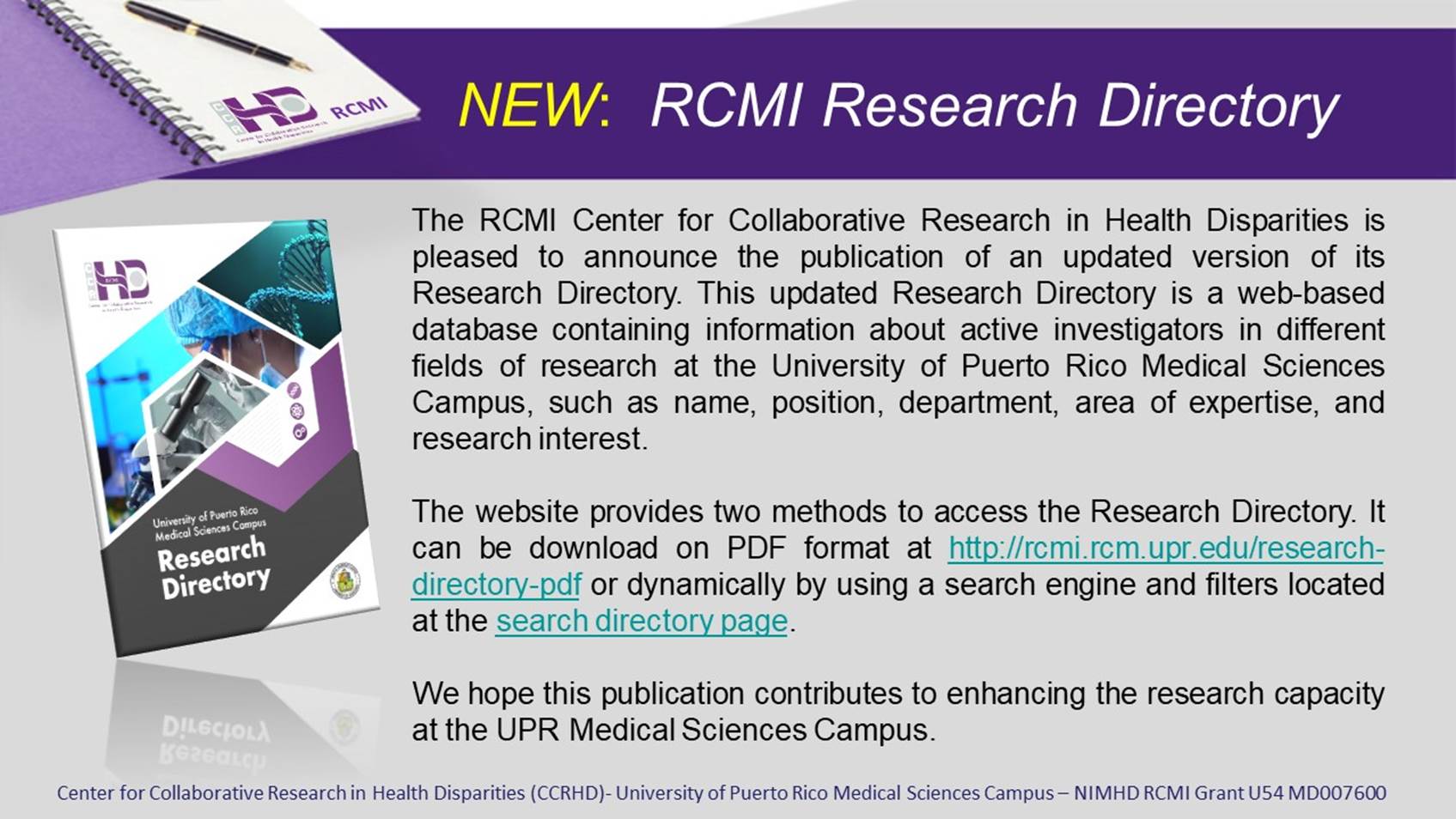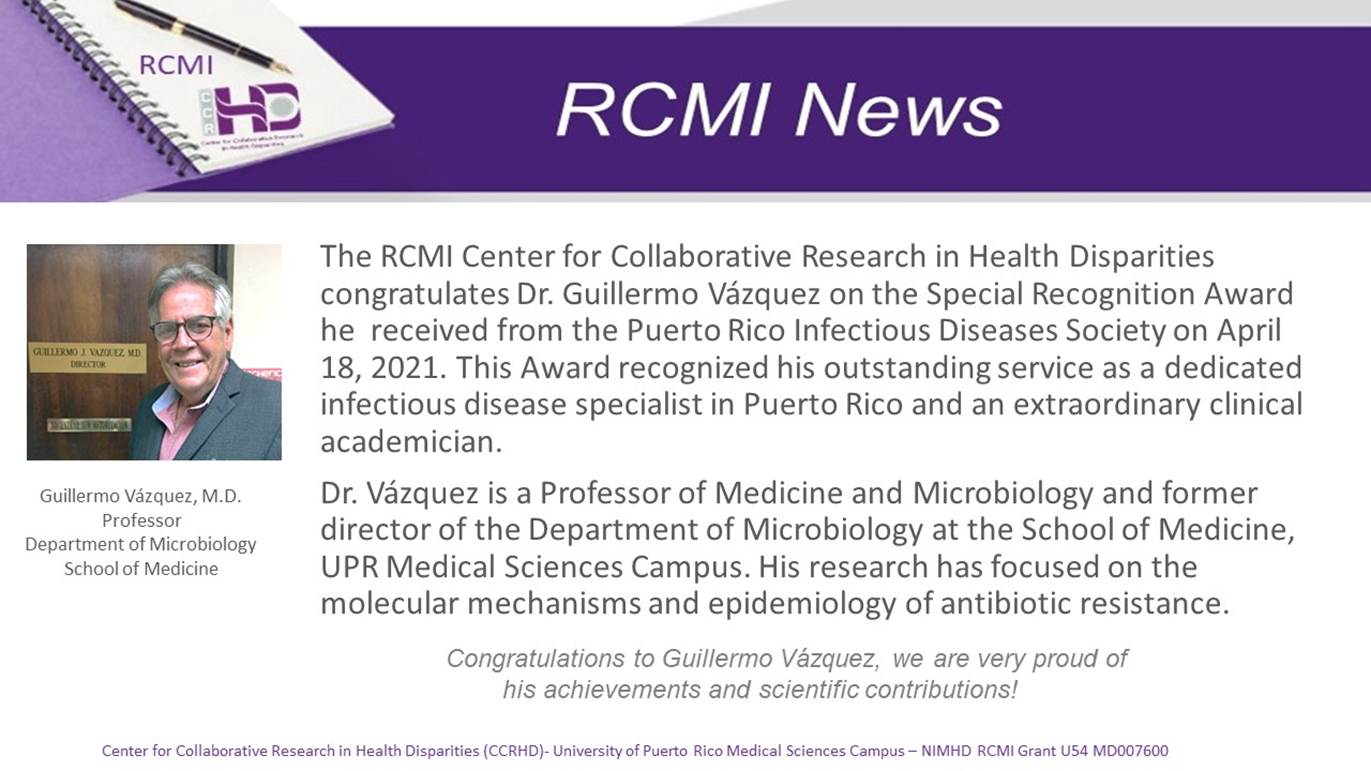Violencia de Género: Lineas de Apoyo
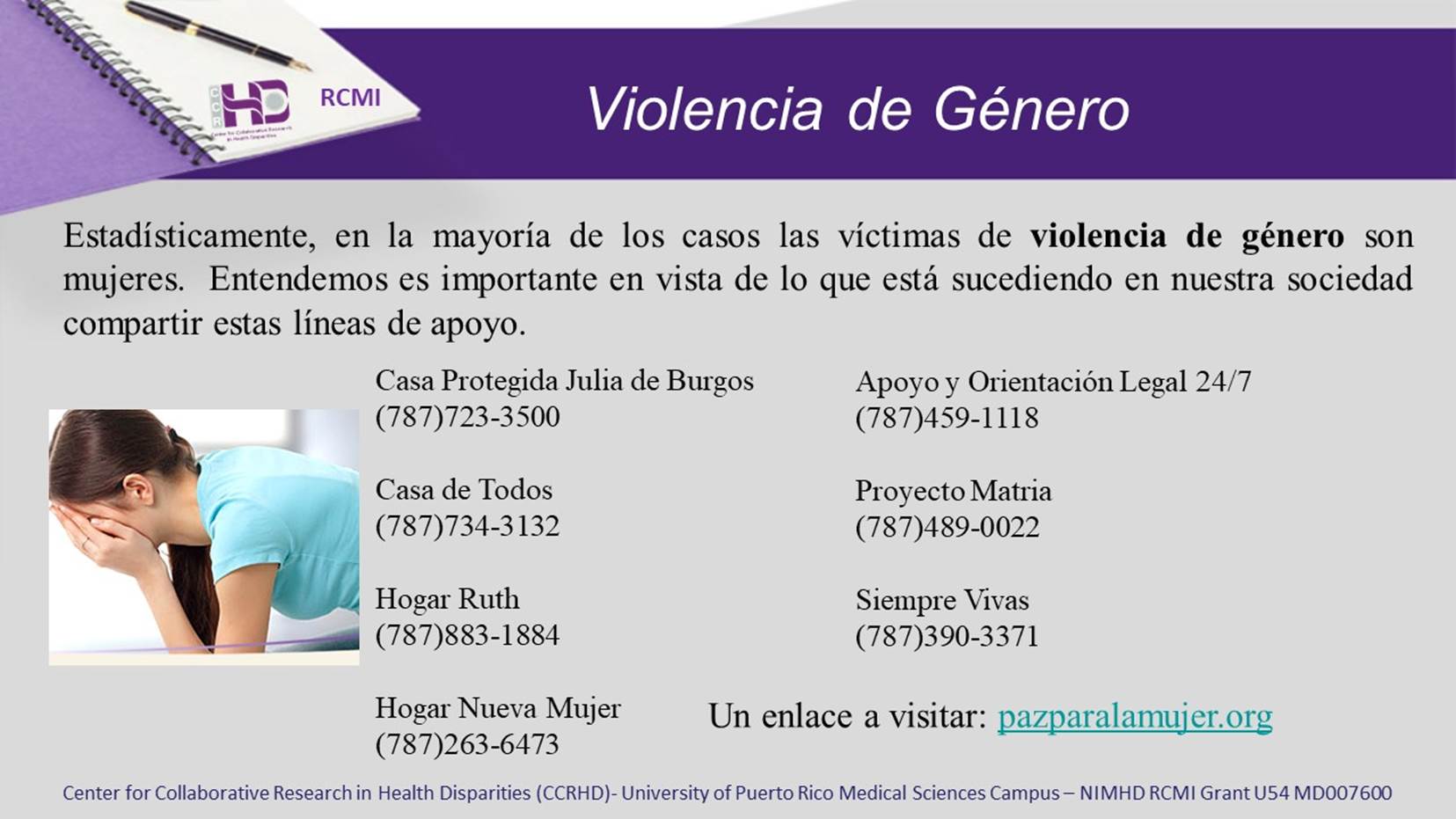


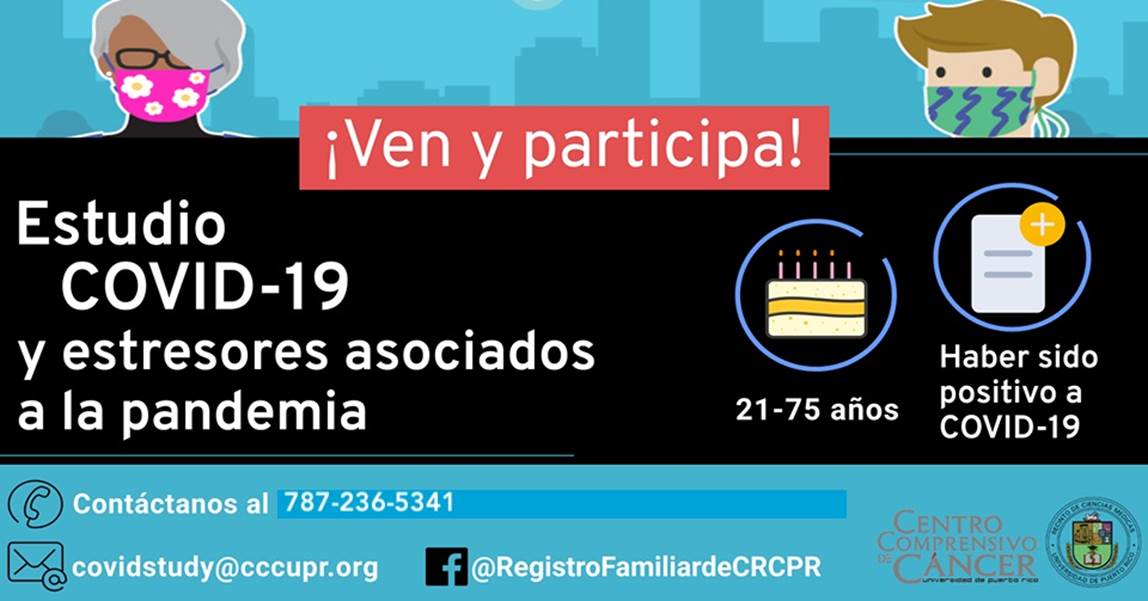
Comunidad Universitaria y Estudiantil
Saludos.
Se comparte información sobre Estudio sobre el Covid-19 donde investigamos la influencia de estresores de la pandemia en el individuo y su respuesta al virus. Buscamos reclutar personas de entre 21-75 -años que hayan tenido Covid en algún momento.
Los interesados puedan brindar su información para nosotros comunicarnos con ellos ( https://forms.gle/
Anuncia: Decanato de Estudiantes
Informa: UPR Centro Comprensivo de Cáncer

Posted May 5, 2021
As announced in March, updated biosketch and other support format pages and instructions are available for use in applications, Just-in-Time (JIT) Reports, and Research Performance Progress Reports (RPPRs). Use of the new format pages is preferred immediately and required for due dates and submissions on or after January 25, 2022 (NOT-OD-21-110). This represents a change from the original May 25, 2021 requirement date for the updated formats and other support signatures. Applicants and recipients can use this time to align their systems and processes with the new formats and instructions. Failure to follow the appropriate formats on or after January 25, 2022 may cause NIH to withdraw applications from or delay consideration of funding.
Applicants and recipients remain responsible for disclosing all research endeavors regardless of the version of the forms used, including:
· Supporting documentation, which includes copies of contracts, grants or any other agreement specific to senior/key personnel foreign appointments and/or employment with a foreign institution for all foreign activities and resources that are reported in Other Support. If the contracts, grants or other agreements are not in English, recipients must provide translated copies.
· Immediate notification of undisclosed Other Support. When a recipient organization discovers that a PI or other Senior/Key personnel on an active NIH grant failed to disclose Other Support information outside of Just-in-Time or the RPPR, as applicable, the recipient must submit updated Other Support to the Grants Management Specialist named in the Notice of Award as soon as it becomes known.
See our Biosketch and Other Support pages for additional information.

By Mike Lauer
Posted April 19, 2021
Imagine this scenario. In the hustle to publish a paper, you accidently forgot to cite the underlying NIH support. Or, the opposite, you opt to include that other grant in the acknowledgements that did not have anything to do with the work. No problem, right?
Well, it could be. Accurately and precisely acknowledging NIH funding allows us to properly assess award outputs and make recommendations for future research directions. It is also a term and condition of award outlined in the NIH Grants Policy Statement. Since the Stevens Amendment passed in 1989, recipients have been required to acknowledge federal funding when publicly communicating projects or programs funded with HHS funds.
NIH relies on proper acknowledgements to link publications to awards, and reviewers rely on it to help assess award productivity. Citing awards that did not directly support the work described in a paper adds to the burden on reviewers, who must then determine which grants were actually related to the reported research. In addition, Congress and the public may use this information to better understand progress resulting from the investment in biomedical research. Improperly citing awards not directly connected to the publication (over-citing) and failing to properly acknowledge NIH-funding on publications (under-citing) may also distort the true effect of NIH funding
So how does one determine when to acknowledge NIH awards on publications? Recipients should only acknowledge NIH awards on publications and other statements when:
· The activities that contributed to that publication directly arise from the award and
· are within the scope of the award being acknowledged
So, ask yourself, did the personnel activity supported by the award contribute to the publication? Did the authors consult with each other, help prepare the manuscript, conduct experiments, or analyze data reported in the paper? Is there a clear and apparent link between the work described in the publication with the aims and objectives of the grant? If so, then cite the appropriate NIH support.
In some cases, it may be difficult to identify which award(s) directly support a specific activity, especially in situations such as for large program projects with multiple components. We have FAQs on our Communicating and Acknowledging Federal Funding web page that may help, or you can also consider reaching out to NIH program staff identified on the award notice for guidance.
We hope this information will help recipients better understand when to link federal dollar amounts to projects. By precisely and accurately acknowledging NIH awards in publications, we all help to ensure proper stewardship of taxpayer funds.


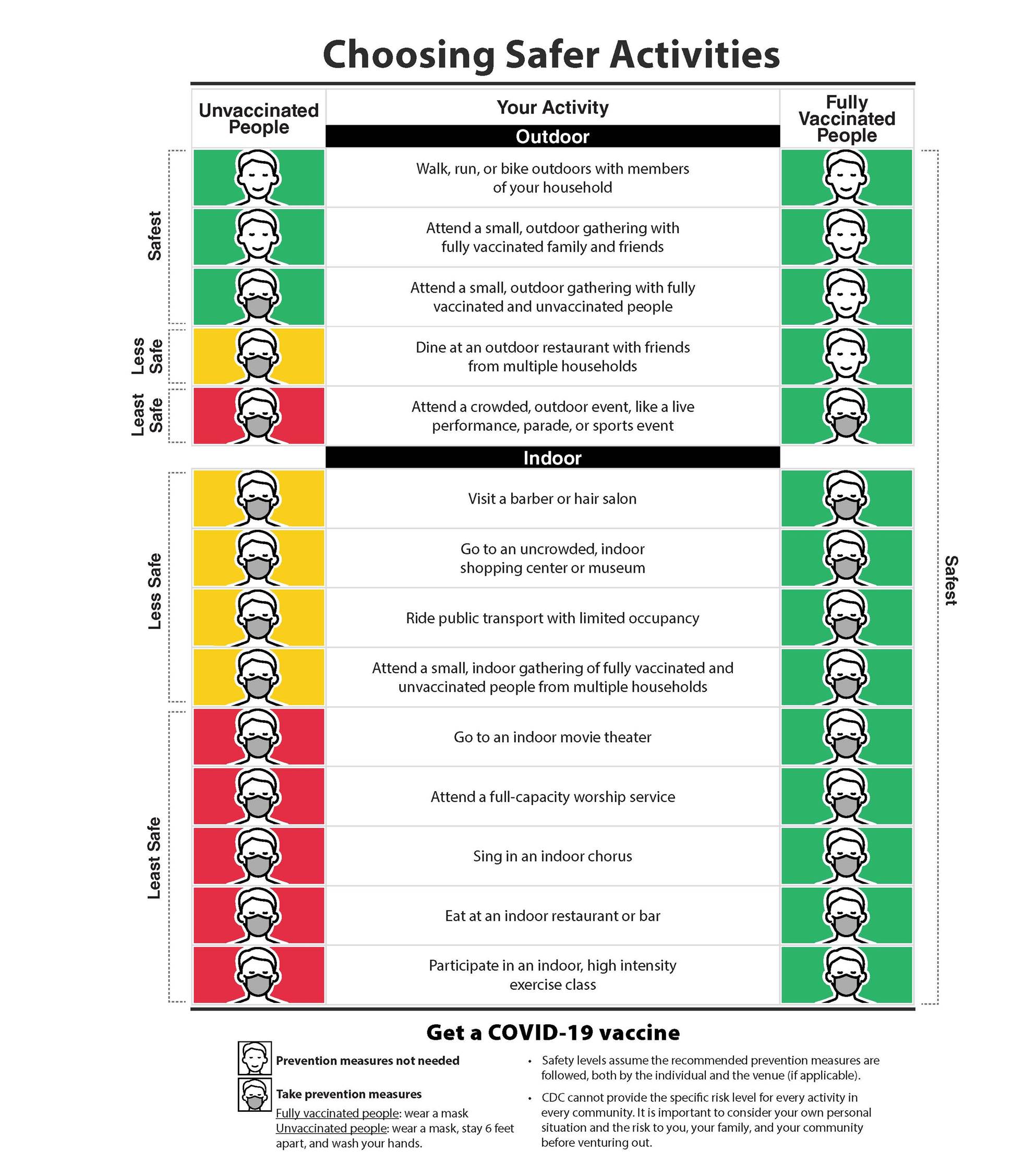
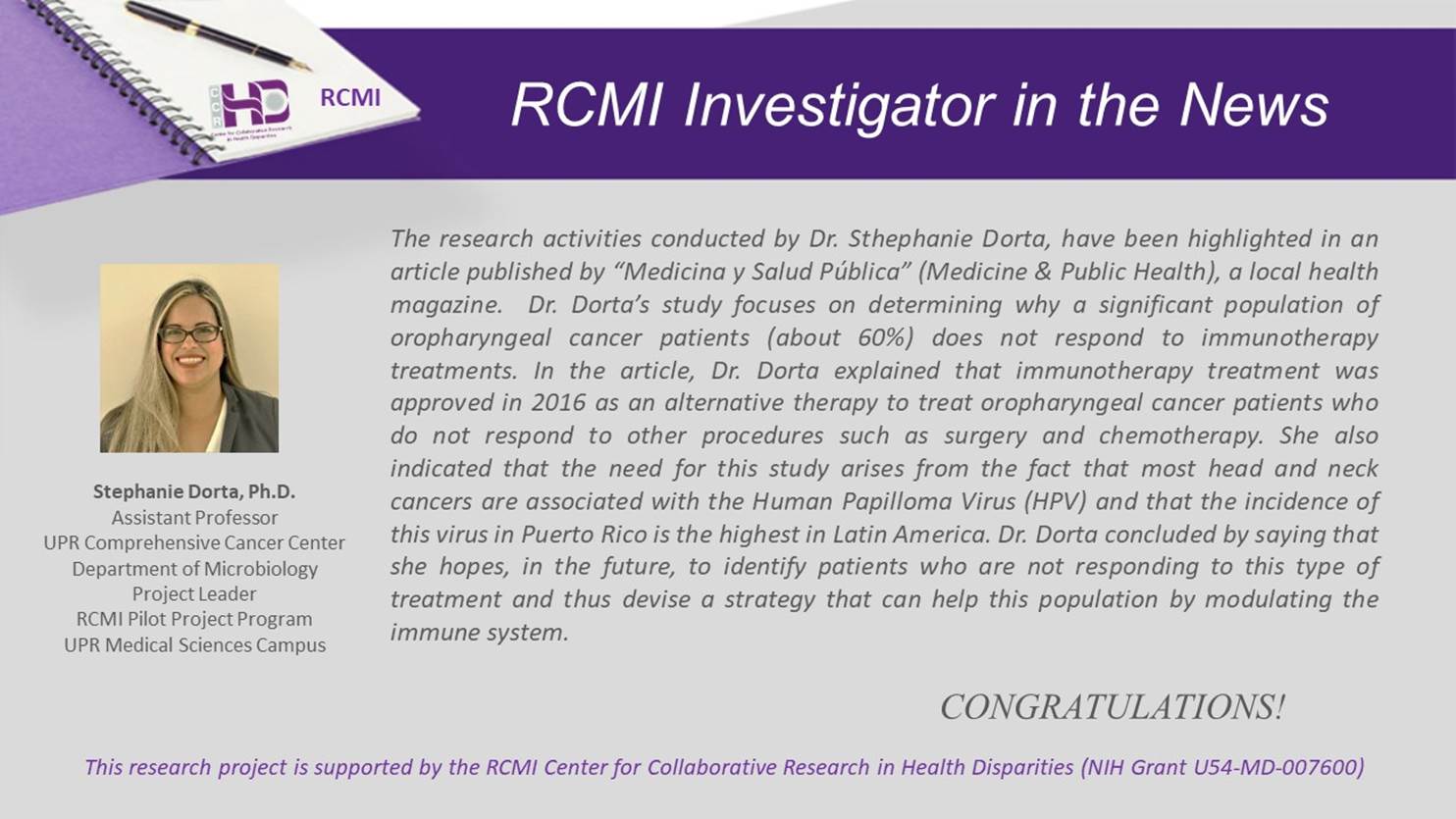

IMPORTANT: NOT-OD-21-073
Please be advised that there is now a slight modification to the NIH Biographical Sketch and Other Support Format Page. Be alert!
Upcoming Changes to the Biographical Sketch and Other Support Format Page for Due Dates on or after May 25, 2021
The changes are as follows:
|
Format Page |
Changes |
|
Biographical Sketch Format Page |
Section B ‘Positions and Honors’ has been renamed ‘Positions, Scientific Appointments, and Honors’. |
|
For the non-Fellowship Biosketch, Section D. has been removed. For the Fellowship Biosketch, Section D has been updated to remove ‘Research Support.’ As applicable, all applicants may include details on ongoing and completed research projects from the past three years that they want to draw attention to within the personal statement, Section A. |
|
|
Other Support Format Page |
The format page has been re-organized to separate funded projects from in-kind contributions. |
|
Signature block added, for Program Director/Principal Investigator or Other Senior/Key Personnel to certify the accuracy of the information submitted. Each PD/PI or senior/key personnel must electronically sign their respective Other Support form as a PDF prior to submission. |
